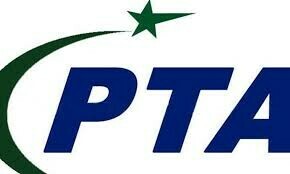On Tuesday, the Pakistan Telecom Authority (PTA) refuted rumors and made it clear that the nation was not blocking virtual private networks, or VPNs.
VPNs are frequently used globally to access content that users may find inaccessible or blocked in their place of residence. Users also utilize them to protect their privacy.
Local internet users saw a sharp rise in the usage of VPNs in 2024. The majority of users have been using them to access X, which was once Twitter but has been restricted in the nation since February 19.
Two days after X was stopped, on February 19, there was a 131% rise in demand for proxy networks, according to a research by Top10VPN, an independent VPN review website.
Rejecting media allegations that the PTA intended to outlaw VPNs nationwide, the organization released a statement emphasizing that the rumors were untrue. On the other hand, it promotes users to register their IP addresses in order to use VPNs.
The telecoms watchdog stated in a statement, “Recent news circulating in media about PTA to block VPNs, it is clarified that VPNs are not being blocked in Pakistan.”
Nonetheless, PTA is urging all banks, freelancers, software houses, IT firms, and other organizations to register their IP addresses for VPN use so that, in the event of an outage, these organizations’ access to the internet remains unaffected.
It went on to say that setting up a VPN was a “one window operation” that could be done for free and would take two to three days through the PTA and PSEB websites.
The president of the authority said a parliamentary committee in August that the organization was developing a plan to control VPN use in Pakistan by allowing access to certain proxy networks while prohibiting others.
Shaza Fatima Khawaja, the nation’s minister of information technology, claimed at a press conference last month that the usage of VPNs was to blame for the nationwide slowdown in internet access.
She had stated, “I want to reassure the public that the state has not slowed down or shut down the internet.”
She denied that the government was involved and asserted that a big number of people had switched to VPNs in order to access specific apps, which was why internet speeds were lower.
The minister had claimed, without providing a specific app or service name, that “the issue was limited to a few services on certain apps not downloading, which led a large segment of the population to start using VPNs.”
According to a technical research carried out by the digital rights organization Bytes For All (B4A), Pakistani internet users who used VPNs to access the internet last month had virtually no disruptions and had faster download rates.
According to the analysis, VPNs can get beyond ISP-imposed throttling or DPI tactics because of the improvement in download speeds and decreased retransmission rates. Deep Packet Inspection is one of the factors that is thought to be causing internet delay.








